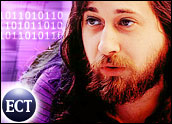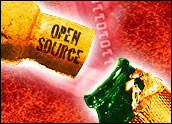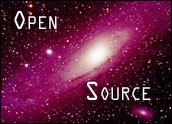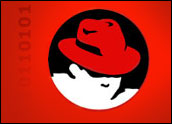
GNU Project founder Richard Stallman has told LinuxInsider that a recent report’s use of interviews with Stallman is a “deliberate” attempt to confuse people about the origins of the Linux kernel, the GNU system and software developed as part of the free-software and open-source movements.
“The purpose of this report is to confuse, to cause fear, uncertainty and doubt,” Stallman said of a draft of a report by the Alexis de Tocqueville Institute. “These people have taken money from Microsoft, they’ve tried this before, and now they’re trying to do it again.”
The report, whose anticipated final release this week has been delayed, characterizes open-source software as the product of “reverse engineering, employee theft, or Rembrandt-like copying,” which the report indicates have “become the proud flag of many in the open-source movement.”
The author, Kenneth Brown, has told LinuxInsider that Linus Torvalds could not have written Linux due to his inexperience and the short, six-month development time without “stealing” from Minix, an operating system written by Andrew Tanenbaum — who also has disputed the findings of the report, both publicly and in discussions with LinuxInsider. Brown holds that both Linux and the open-source movement are therefore forever vulnerable to intellectual-property theft claims.
Capitalizing on Confusion
In particular, Stallman criticized the report for capitalizing on common confusion between the Linux kernel, which Stallman says “Linus really wrote,” with the full GNU operating system and associated software, which can be and generally is used with the Linux kernel.
“The actual words I used were quoted correctly, but [author Kenneth Brown] deliberately confuses his terms, like ‘Linux.’ He confuses the Linux kernel, which I had nothing to do with, and the GNU OS project, which I launched,” said Stallman, who characterized such mistakes as “deliberate.”
Stallman also said Brown himself misuses words in the report to tarnish both Torvalds’ Linux kernel work and Stallman’s own Free Software Foundation (FSF) efforts, such as when Brown alleges Torvalds didn’t “invent” Linux. “You don’t ‘invent’ an operating system or a kernel, you write it,” Stallman told LinuxInsider. “Copyright doesn’t cover ideas; it’s your expression of those ideas.
“And the open-source and free-software movements are very different,” he added, arguing that the latter has a set of values codified by Stallman’s oft-quoted “four freedoms,” while the former is primarily commercial in its aims. “By misusing those terms, it’s meant to confuse people who don’t know any better,” he said.
The Free Software Foundation’s four freedoms hold that everyone has the right to the following: the freedom to use the software, including the source code; the freedom to distribute the software; the freedom to modify the software; and the freedom to distribute the modifications to the software.
Open Source versus Free Source
The status of the two groups’ intellectual-property origins is also very different, according to Stallman. Eben Moglen, a Columbia University law professor and pro bono attorney for the Free Software Foundation, said the FSF has for years required that contributors to its source code assign their copyrights to the Free Software Foundation, which promises to keep the source free forever.
In contrast, Moglen characterizes contributions to Torvalds’ Linux projects as having been, until recently, “among the least concerned about documenting [intellectual property] rights” to its source code. To tar both movements with the same brush, said Stallman, is unfair and inaccurate, yet that’s what the report does.[*editor’s note]
Report Still ‘Under Construction’
Brown earlier told LinuxInsider that the report, titled “Samizdat: The Source of Open Source Code,” would be released in final form this week. But a spokesperson said yesterday that the report is still being worked on.
Current plans are to incorporate material discussing both Brown’s responses to his critics and the impact of Torvalds’ recent announcement that, in the future, Linux kernel contributors will have to certify the origins of their code before it can become part of the kernel.
The spokesperson would not commit to a particular release date. Links on the ADTI home page labeled “To track updates and press coverage in the controversy, including ADTI replies to the emerging accounts of Messrs. Torvalds and Tanenbaum, click here,” return “under construction” icons.
*From Richard Stallman: There is a subtle confusion here, because I was contrasting the free software movement and the open source movement. Moglen was, or so it appears, contrasting GNU andLinux. Those are two different contrasts, and confusion of the twois misleading. The brush that I ask you not to tar the GNU Projectwith is simply the label “open source.”






















































It makes you wonder about people submiting code not originating from them, and then passing it off to the trusting. Makes for a great read or maybe a movie, if handled properly. Maybe Mr. Stallman and Mr. Torvalds have been handled.
Dear All,
The following link might give you a very valuable information
_
http://www.cs.vu.nl/~ast/brown/codecomparison/
_
Sincerely,
Evghenii